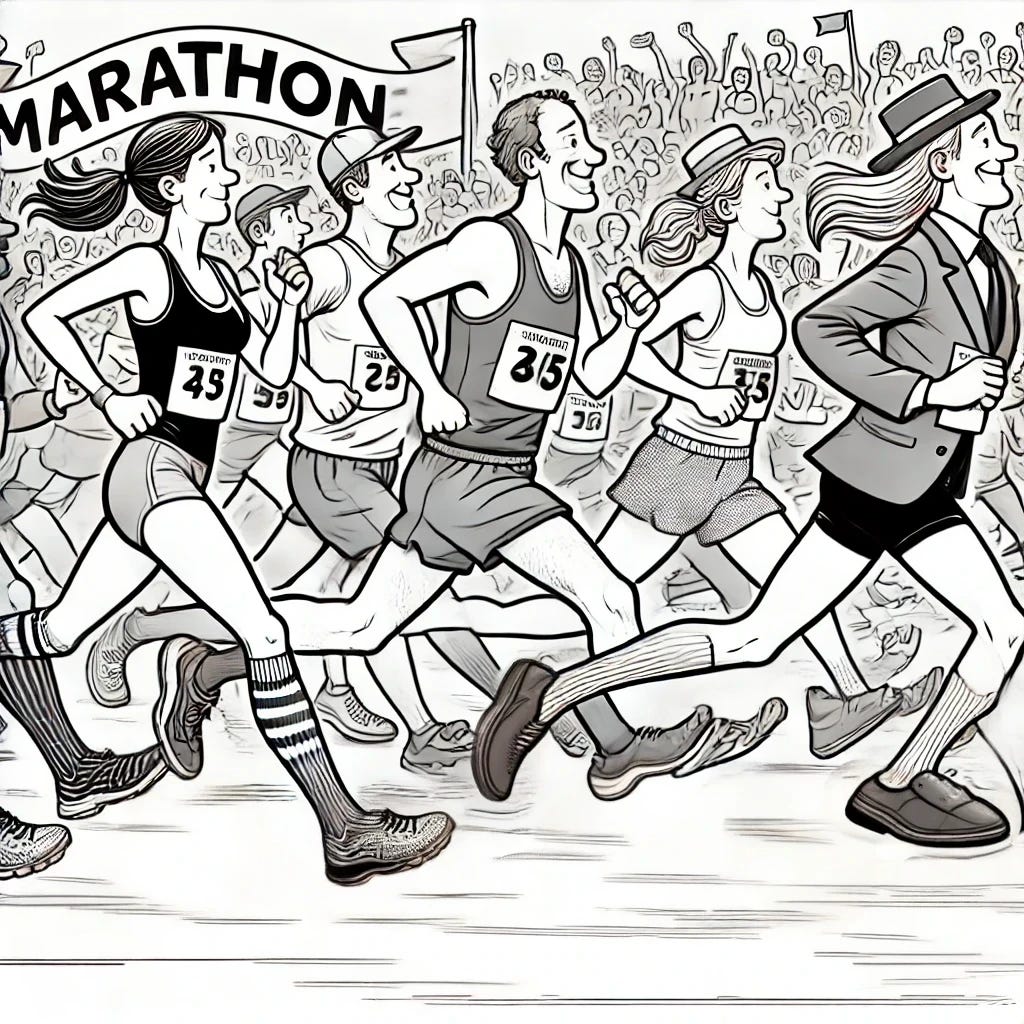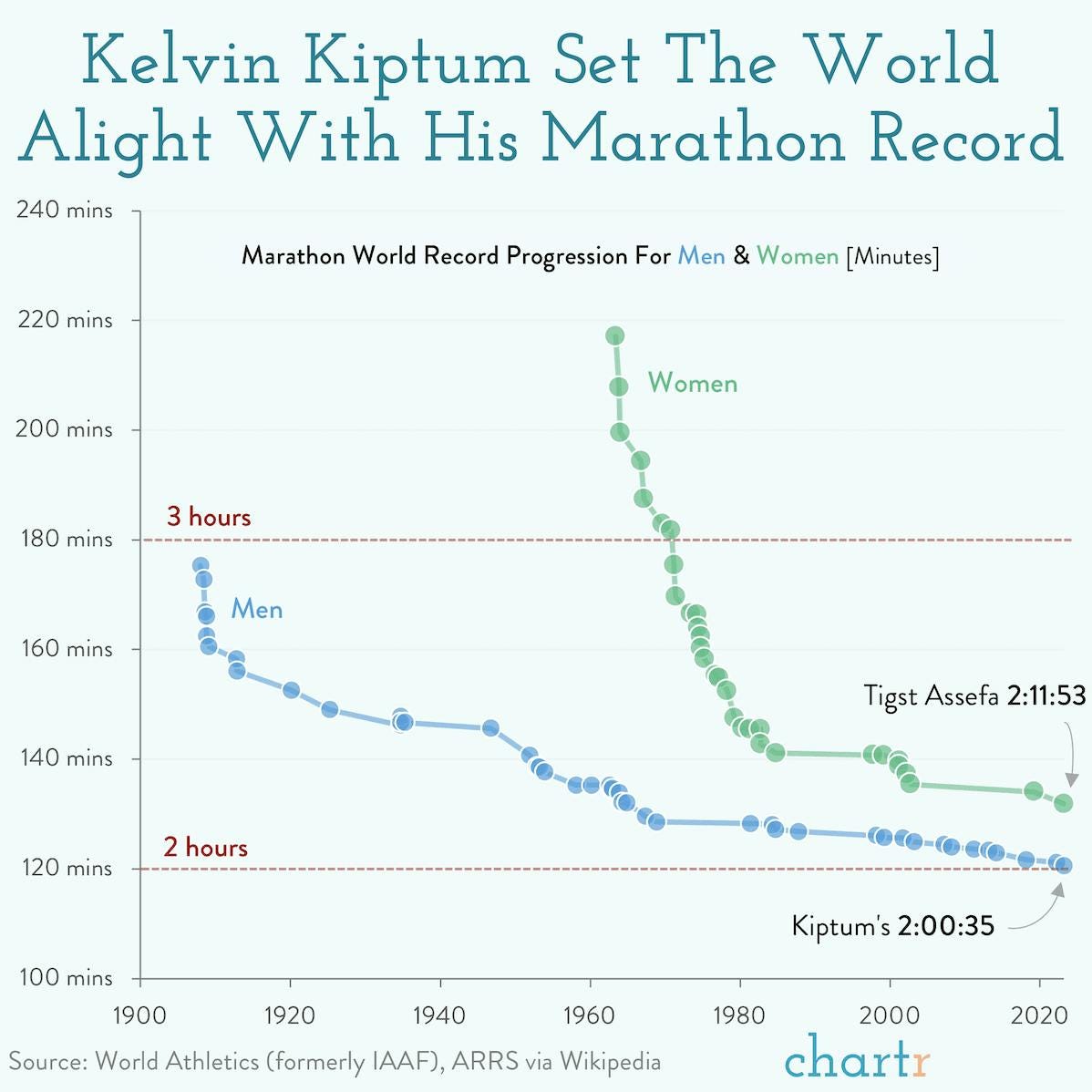
Geek Locker
Welcome back to the Geek Locker Roundup— your bi-weekly collection of the latest sports innovation news, product releases, and design resources!
Last week, we dove into the concept of the “meta” in sports, and what forces lead to changes in the overarching strategies and play styles in a league over time. To me, many esports like League of Legends represent the pinnacle of hands-on meta crafting by a governing body in order to maintain novelty and excitement. Especially as the quantity and type of professional sports leagues keeps growing and the attention economy keeps becoming more competitive, I think leagues will start to adopt this type of direct approach to creating a more entertaining product by more quickly modifying league and game rules!
Investigating Meta, but Not in a Meta Way
The 2024 League of Legends (“League”) World Championship wrapped up in November as one of the most watched esports events of all time, peaking at 50 million concurrent viewers globally. In response, Riot Games, the creator of League, did what any professional sports governance body would obviously do, and made sweeping changes to the game itself. Not on…
We also dug into the relative costs of constructing pro sports stadiums versus the cost of other real estate development projects. In general, support of public funding and tax breaks for building new stadiums has been waning, and it surprised me that most stadiums are not actually that much more expensive than other projects like skyscrapers and new homes on a per-square-foot basis. If anything it casts into doubt how good of an investment a stadium might actually be, although I guess part of the argument is that the return on investment for a stadium is not completely financial, but also related to the fandom and local benefits.
Recess #3: Zillow Gone Wild, Stadium Edition
Recess articles on The Geek Locker cover topics across the world of sports technology and business with the pithiness and conciseness they likely require— hopefully with a side of interesting insights. Enjoy!
Next week, I’ll be exploring some of the most important topics of the year so far (sarcasm), starting with an “analysis” of how the total weight of an NFL team correlates to its success. Next, we’ll answer the question on everyone’s mind: why is a bocce ball the size it is (4.2” diameter)? And finally, we’ll dive into the recent resurgence of collectible trading cards, both for sports card collectors, and trading card games like Pokemon, Magic: The Gathering, and most recently Lorcana. If nothing else, it will be a fun nostalgia trip!
Stat of the Week
It finally happened— someone was able to replicate the achievements of old, and win a marathon in sandals, although this time they had carbon plates in the sole. Kenya’s Barnabas Kiplimo won the Khon Kaen Marathon in Thailand with a final time of 2:18:55. That represents an average pace of 5:18/Mile, and would have been the fastest time in the world until 1953, which is pretty insane. As someone who extolls the benefits of thermal management in athletics, even I think wearing sandals is on the tenuous end of beneficial.

As always, I appreciate your engagement and please share with others who might be interested in reading about sports innovation. On to the news!
Company Cable
Updates about major sports tech company transactions.
The Athletic Founder Alex Mather has launched Eternal and raised $13.25M in a seed funding round. Eternal is looking at bringing healthcare practices usually reserved for elite athletes, like DEXA scans, Vo2 testing, and regular blood work, to the masses (that can afford it). The company is hoping some of the breakthrough research on longevity will contribute to the effectiveness of their first two clinics in NYC and San Francisco.
Men In Blazers has finalized a $15M Series A fundraise ahead of the 2026 World Cup in North America. Men in Blazers is one of the largest soccer-focused media outlets in the United States, with a big network of podcasts, shows, journals, newsletters, and every other production under the sun providing coverage of almost every soccer league imaginable. I’m sure the investors are salivating over a potential inflection point for the sports’ popularity following the World Cup!
DAZN's owner Leonard Blavatnik has invested an additional $827M into the company. He is hoping that he can lure additional investment from the Middle East, and was quoted as wanting to create the “Spotify of sport,” which is quite a lofty goal. Right now to me this statement means that he wants to incorporate more AI features and user interfaces that degrade the product over time (Spotify is grinding my gears right now).
Springbok Analytics has finalized an oversubscribed Series A funding round totaling $5M. Springbok uses AI and image processing to analyze MRIs and provide complete muscle health data to patients and athletes, and raise money from the NBA in this funding round after participating in its Launchpad incubator in 2023.
Norway-based SportAI has raised $805K in funding through grant programs. SportAI’s current capabilities are focused on asynchronous analysis of tennis, but if they follow the path of similar companies, they’ll quickly end up providing live analysis of multiple racket sports.
Irish startup Output Sports has raised $4.8M in a pre-series-A funding round. The company itself has actually been around for over 20 years, and focuses on sensor-based measurements of velocity-based training (VBT) for professional athletes in the gym. They have pretty broad adoption with British soccer clubs, and are competing directly with the likes of Perch, who uses computer vision to tackle the same problem in the US.
New Releases
New sports products and major features hitting the market.
Hoka has released its very first formal shoe-- the Speed Loafer. Effectively, it’s a leather upper attached to the Speed Goat trail running sole, and it’s completely sold out online. I’m not gonna lie, I am full of regret that I didn’t try to get a pair. For any companies listening, please make more fun products like this!
Oakley and Meta are teaming up in 2025 to release smart glasses aimed at athletes. It was only a matter of time until people turned a closer eye to heads-up displays in sports given all the advancements in AR/VR and micro-computing technology. I’m interested to see what this yields!
Comcast Xfinity has launched a new sports and news-focused cable package. As someone who is not a user of cable (I never even had a cable to cut, so to speak), I feel like it somehow seems like more convoluted with every news article I read. However, I feel that way about live sports streaming as well, so maybe it’s all just a mess.
Ski touring app OnX has launched new avalanche prediction features, including ATES mapping. Mobile phone and GPS watch functionality has quietly and steadily increased the accessibility and safety of back country skiing over the last decade, so it’s great to see even more features added to the apps that make it possible.
British startup Body Rocket is launching what it claims to be the most accurate cycling power meter. The company claims that the pedal-based power meter is accurate to within +/- 0.1%, while most other power meters clock in around +/- 1%, so an order of magnitude improvement in accuracy is quite something. I imagine that the testing that yielded these results was relatively controlled, and perhaps the accuracy wavers over time, but it’s great to see innovation in this space.
Some News
Select news stories from across the sports and design world.
The first Unrivaled 3v3 league broadcast peaked at over 350,000 viewers. Overall, the launch has been deemed a success with investor (and WNBA legend) Sue Bird adding that the league’s reach on social media was even more impressive, with over 30 million impressions online.
The National Women's Soccer League has welcomed its 16th team in Denver at a fee of $110M. It was the largest buy-in price to date, and in tandem with the PWHL continuing to gain momentum, it might end up looking like a bargain a few years from now. In related news, Ariel Investments will launch Project Level, a new fund focused on women's sports, and part of their focus is on the NWSL and similar leagues.
In a shock (perhaps to no one), it turns out that at-home gym companies like Peloton and Nordictrack capture and analyze a lot of personal data. Many users are not happy, but I think in general it’s just a good idea to assume that if you’re providing your health data into a company’s product, it’s probably being shared in semi-nefarious ways.
A portion of the Pittsburgh Penguins may be up for sale by the Fenway Sports Group later this year. If you’ve got a few hundred million dollars burning a hole in your pocket, now might be the time to go out and grab a piece of a historic NHL franchise!
Orange Theory is partnering with the air purification company Molekule. It’s a slightly quirky partnership that highlights the continued battle fitness class providers and public gyms have in bringing back athletes after the COVID pandemic.
Grab Bag
Interesting or useful sports innovation and product design resources, ranging from books and websites to individual graphics.
Front Office Sports published a write-up about the success odds of investments in new sports league. The rule of thumb I’ve always heard for general startups is that one-in-ten fail within the first five years. If that holds for professional sports leagues, it unfortunately means that many of the now-hyped up starts taking on major investment won’t be around for very long. It will be extremely interesting to see how it all shakes out!
Researchers published a paper sharing raw data about the player tracking and match data from 7 Bundesliga matches. The researchers used TRACAB’s visual player tracking equipment to publish the data with the goal of promoting more transparency and access in match-tracking data.




